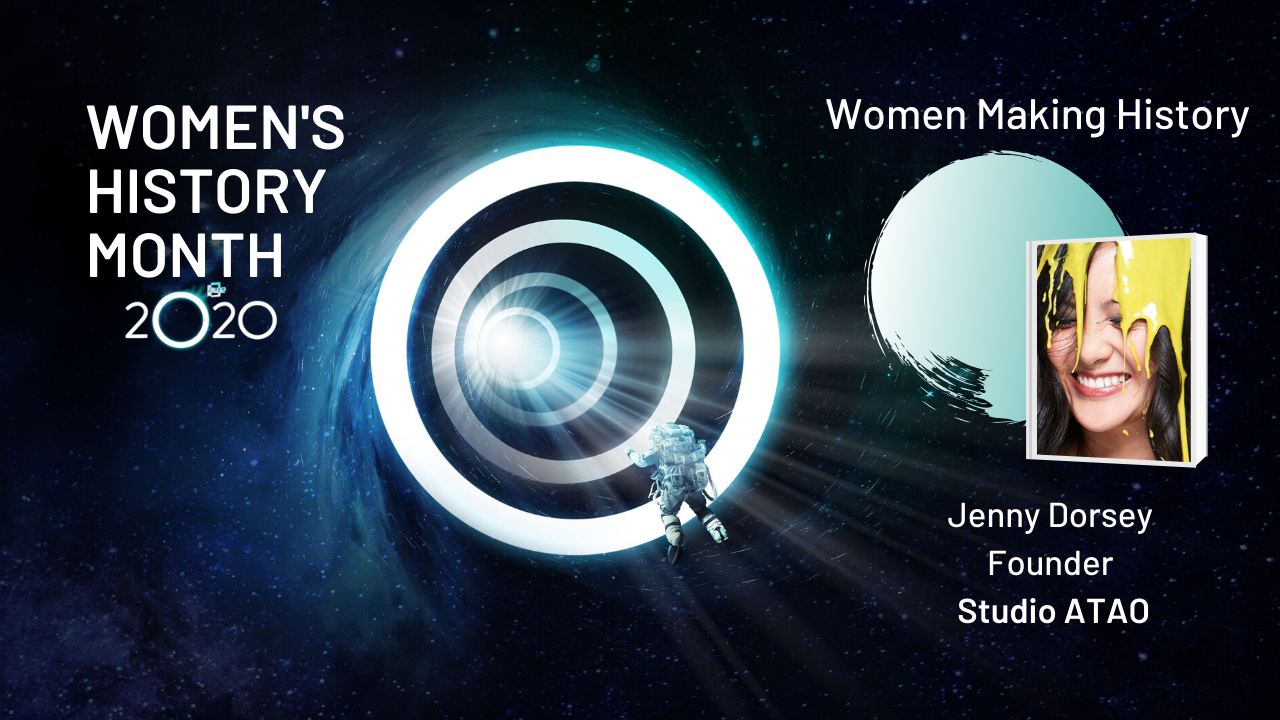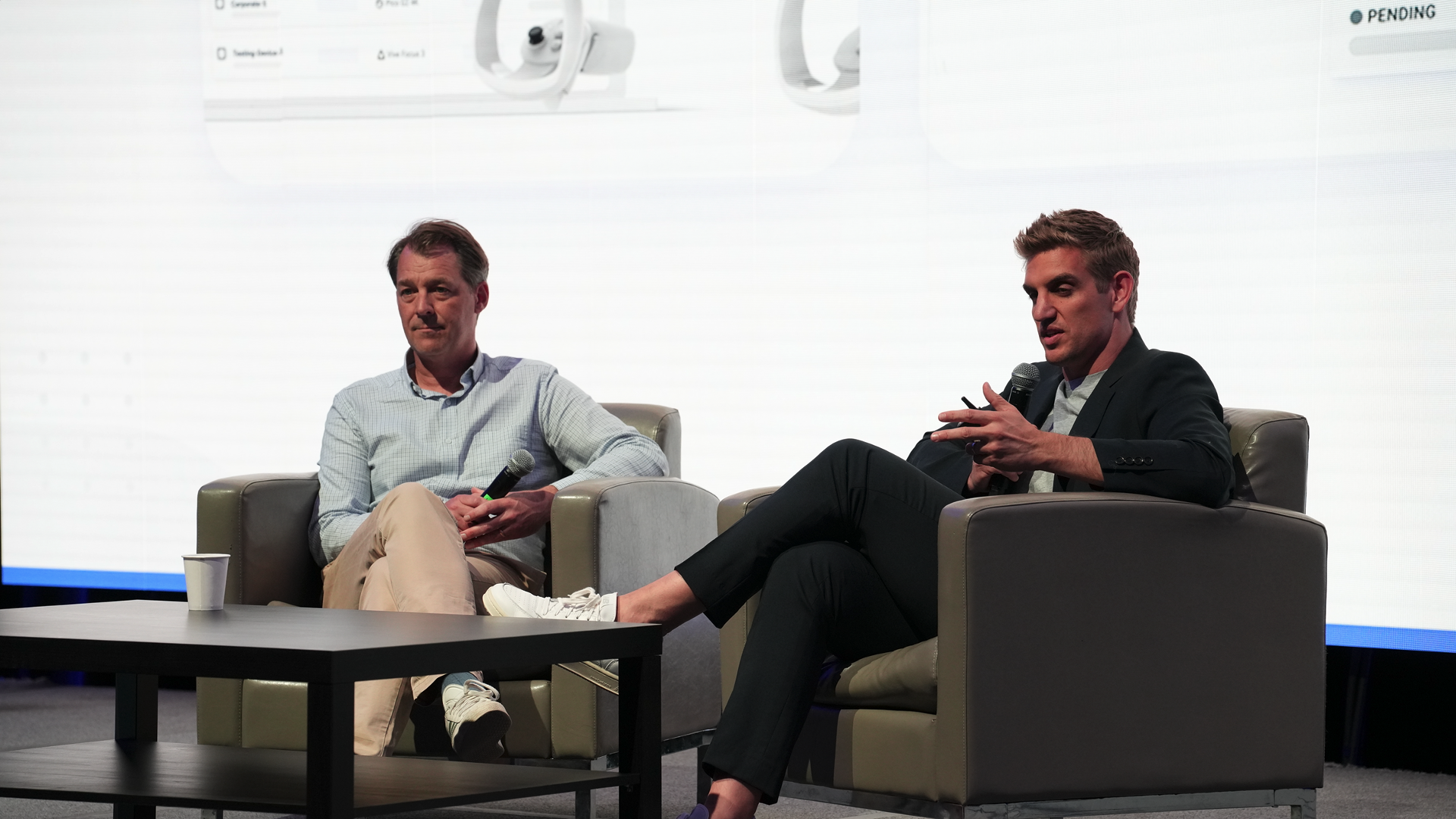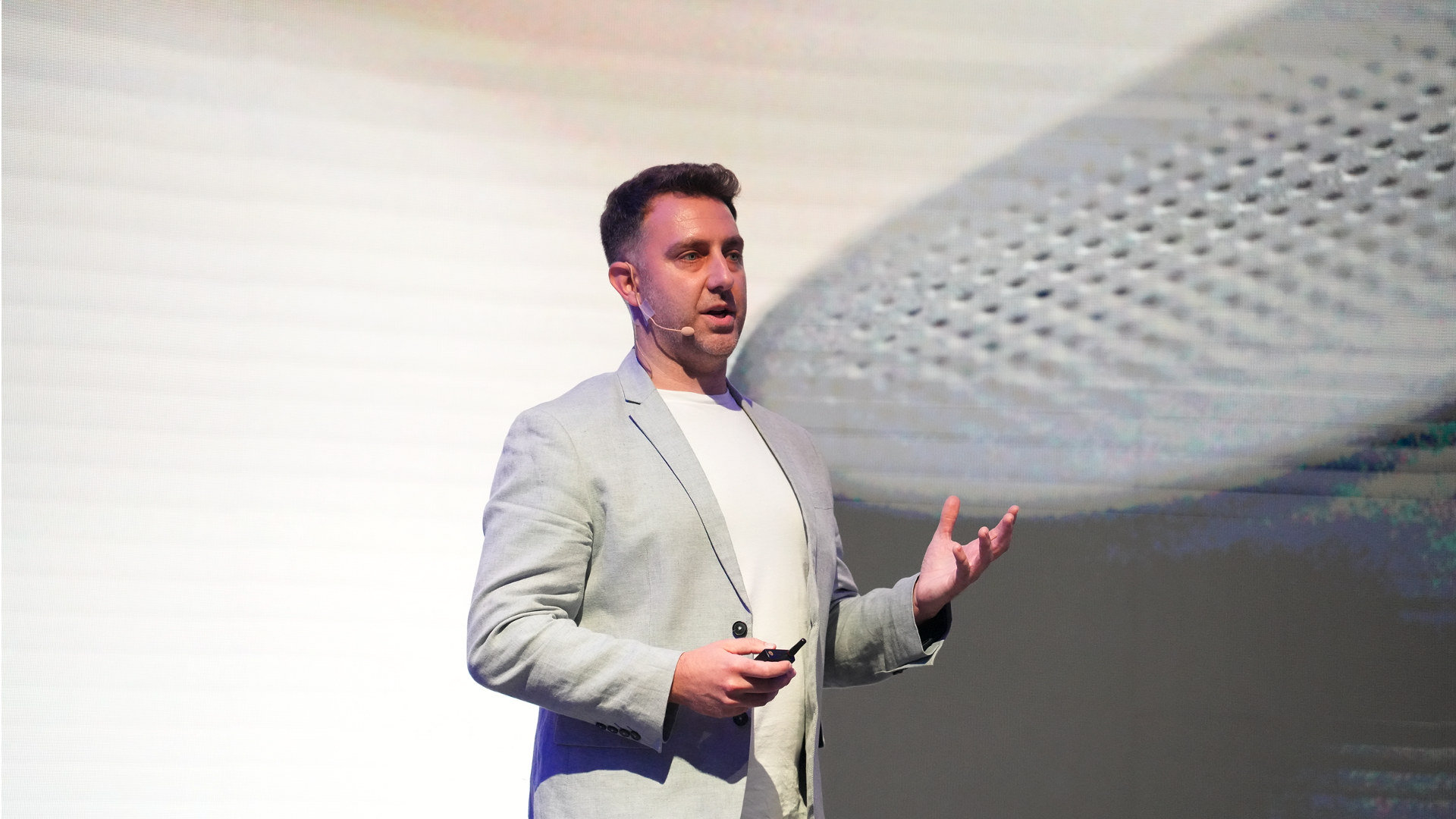Women Making History: Meet Jenny Dorsey, Founder, Studio ATAO
Sorry, boys; the women of augmented and virtual reality are 'killing it.' Nevertheless, the immersive technology industry has a ways to go towards gender equality. As in the technology industry as a whole, women in XR typically receive less VC funding and occupy fewer leadership and technical positions compared to men. So, for Women's History Month 2020, we're interviewing real women who challenge the idea that the AR/VR industry lacks visible female role models. Enjoy!
1. To begin, could you provide us with a little background on yourself and your career? What does your job entail and what was your very first encounter with AR/VR?
Jenny: I am a NYC- and LA-based professional chef, artist and social activist who uses culinary arts to evoke introspection, empathy and real emotion. I started my career as a management consultant and continued onto a Columbia MBA before realizing my true calling was in food; I began in restaurants, working at Michelin-starred Atera (NYC) and Atelier Crenn (SF) before recognizing my voice in food was deeply connected to vulnerability and I wanted to use my food to amplify bigger social issues.
Since then, I've been working to address systemic injustices through my work, presenting my food in exhibition-style dinner experiences via my nonprofit Studio ATAO. It is an immersive events company that creates interdisciplinary, impact-driven experiences. Our theory of change is that interpersonal connection, personal vulnerability and positive conflict are key to driving meaningful allyship.
My first encounter with AR/VR was through reading about it online through WIRED. I was hooked, but didn't know how to incorporate it into my work. I had a strange, serendipitous moment at acupuncture where I bolted up and realized I should do VR dining experiences and have been experimenting with them since then.
2. What is it like as a woman working in AR/VR?
Jenny: It's challenging to be taken seriously as a woman in tech and a woman in food. Marrying the two has other difficulties, especially because I am not from a technical background. Being able to command the respect of those who I must work with - vendors, colleagues, clients, etc. - has definitely been a challenge given my sex, race and age.
3. What challenges do you face that your male colleagues and peers don't?
Jenny: I often find vendors attempting to upcharge me or 'pull the wool over my eyes,' so to speak, because they don't believe I understand what I'm asking for and/or they can sell me on more by intimidation (this goes for both male and female vendors - the most egregious instance of this was by a female vendor) because I am female. I also find it significantly harder to negotiate pricing with clients even when I know they have spent considerably more on my male counterparts.
4. Have you ever felt judged or overlooked because of your gender?
Jenny: Certainly, I'm often seen as ' not experienced enough' or talked down to about areas of work in which I am an SME.
5. What about the user experience for women; how do today's XR devices fit and perform for women?
Jenny: Most XR devices and experiences are meant for men, as is the rest of the world. Hence why my experiences are built to specifically center around women, celebrate them and be attuned to how they feel.
6. Do you feel there's a lack of content for women AR/VR users? What would you like to see?
Jenny: Definitely. It's not that the content itself is not 'for' women, but rather I would like to see the same content but made by women, just how movies shot by female directors or food made by female chefs offer diversity to those fields.
7. What is your advice to women who want to break into AR/VR?
Jenny: Don't let anyone make you feel your ideas are not as important or that you should not take up space.
8. What would you like to say to men in the space? What should they be doing to help women in tech?
Jenny: Being an ally means putting your neck on the line and experiencing the ramifications, too. If that means pulling out of a conference or galvanizing behind someone's story, etc., then by all means do so. Otherwise, simply working with women.
9. What is the most critical issue for women in AR/VR in the next decade?
Jenny: Changing the narrative that entertainment, especially digital content, should be made for and by the male gaze.
Jenny is a professional chef, author and artist specializing in multi-platform storytelling fusing food with social good. She leads a nonprofit immersive events company named Studio ATAO (www.studioatao.org) and runs her own culinary consulting business. Her full biography, food portfolio and writing can be found at www.jennydorsey.co.
1. To begin, could you provide us with a little background on yourself and your career? What does your job entail and what was your very first encounter with AR/VR?
Jenny: I am a NYC- and LA-based professional chef, artist and social activist who uses culinary arts to evoke introspection, empathy and real emotion. I started my career as a management consultant and continued onto a Columbia MBA before realizing my true calling was in food; I began in restaurants, working at Michelin-starred Atera (NYC) and Atelier Crenn (SF) before recognizing my voice in food was deeply connected to vulnerability and I wanted to use my food to amplify bigger social issues.
Since then, I've been working to address systemic injustices through my work, presenting my food in exhibition-style dinner experiences via my nonprofit Studio ATAO. It is an immersive events company that creates interdisciplinary, impact-driven experiences. Our theory of change is that interpersonal connection, personal vulnerability and positive conflict are key to driving meaningful allyship.
My first encounter with AR/VR was through reading about it online through WIRED. I was hooked, but didn't know how to incorporate it into my work. I had a strange, serendipitous moment at acupuncture where I bolted up and realized I should do VR dining experiences and have been experimenting with them since then.
2. What is it like as a woman working in AR/VR?
Jenny: It's challenging to be taken seriously as a woman in tech and a woman in food. Marrying the two has other difficulties, especially because I am not from a technical background. Being able to command the respect of those who I must work with - vendors, colleagues, clients, etc. - has definitely been a challenge given my sex, race and age.
3. What challenges do you face that your male colleagues and peers don't?
Jenny: I often find vendors attempting to upcharge me or 'pull the wool over my eyes,' so to speak, because they don't believe I understand what I'm asking for and/or they can sell me on more by intimidation (this goes for both male and female vendors - the most egregious instance of this was by a female vendor) because I am female. I also find it significantly harder to negotiate pricing with clients even when I know they have spent considerably more on my male counterparts.
4. Have you ever felt judged or overlooked because of your gender?
Jenny: Certainly, I'm often seen as ' not experienced enough' or talked down to about areas of work in which I am an SME.
5. What about the user experience for women; how do today's XR devices fit and perform for women?
Jenny: Most XR devices and experiences are meant for men, as is the rest of the world. Hence why my experiences are built to specifically center around women, celebrate them and be attuned to how they feel.
6. Do you feel there's a lack of content for women AR/VR users? What would you like to see?
Jenny: Definitely. It's not that the content itself is not 'for' women, but rather I would like to see the same content but made by women, just how movies shot by female directors or food made by female chefs offer diversity to those fields.
7. What is your advice to women who want to break into AR/VR?
Jenny: Don't let anyone make you feel your ideas are not as important or that you should not take up space.
8. What would you like to say to men in the space? What should they be doing to help women in tech?
Jenny: Being an ally means putting your neck on the line and experiencing the ramifications, too. If that means pulling out of a conference or galvanizing behind someone's story, etc., then by all means do so. Otherwise, simply working with women.
9. What is the most critical issue for women in AR/VR in the next decade?
Jenny: Changing the narrative that entertainment, especially digital content, should be made for and by the male gaze.
Jenny is a professional chef, author and artist specializing in multi-platform storytelling fusing food with social good. She leads a nonprofit immersive events company named Studio ATAO (www.studioatao.org) and runs her own culinary consulting business. Her full biography, food portfolio and writing can be found at www.jennydorsey.co.



